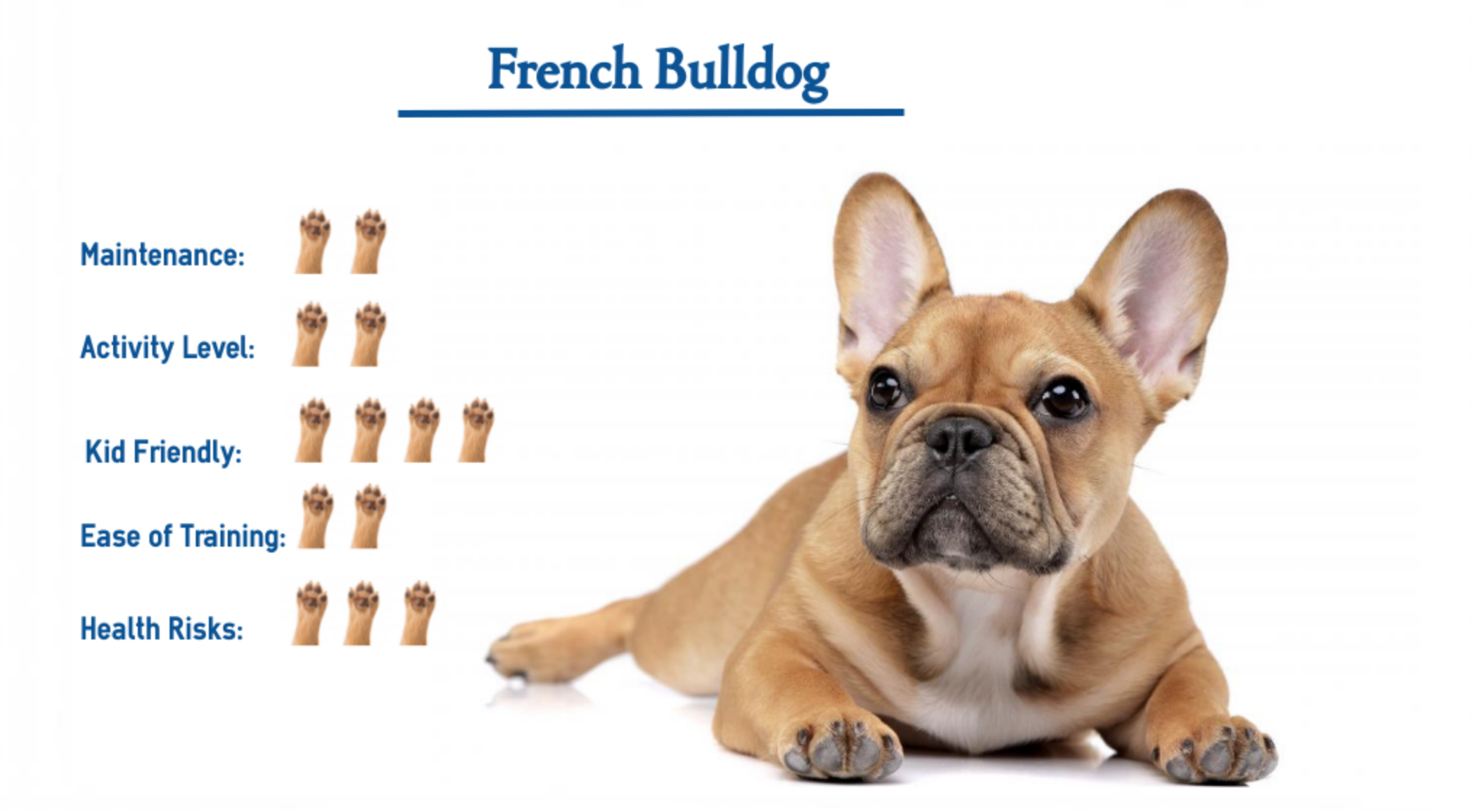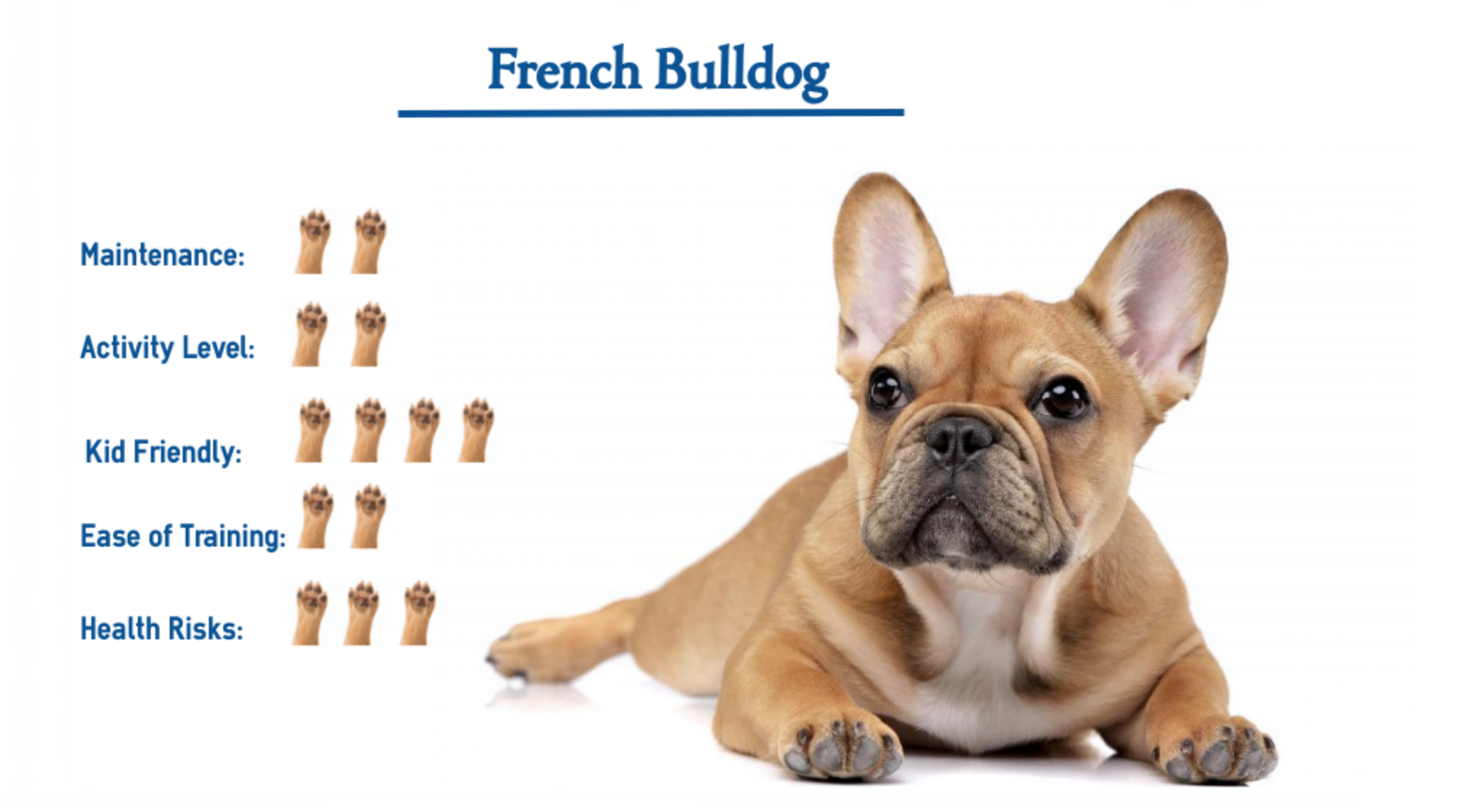When it comes to the health and well-being of French Bulldogs, there are certain risks and dangers that owners should be aware of. While these adorable and affectionate dogs are generally sturdy and resilient, there are still potential hazards that can pose a threat to their lives. Understanding what can kill a French Bulldog is crucial for responsible owners who want to provide a safe environment for their furry companions.
One common cause of death among French Bulldogs is respiratory issues. Due to their unique physical characteristics, such as their short snouts and compact skulls, French Bulldogs are prone to brachycephalic airway syndrome. This condition can lead to difficulty breathing, overheating, and even collapse. In fact, a study conducted by the Royal Veterinary College found that respiratory problems were the leading cause of death in French Bulldogs, with 71% of the cases attributed to airway obstruction. To minimize the risk, it is important to keep French Bulldogs in a cool and well-ventilated environment, avoid excessive exercise, and seek veterinary care if any signs of respiratory distress are observed.
French Bulldogs are susceptible to certain health issues that can be life-threatening. Some common factors that can pose a risk to their well-being include brachycephalic airway syndrome, heatstroke, obesity, allergies, and certain medications. It is important to provide them with proper care, regular exercise, a balanced diet, and regular vet check-ups to minimize these risks and keep them healthy and safe.

Hidden Dangers: Protecting Your French Bulldog from Potential Hazards
French Bulldogs are adorable and popular companion dogs known for their affectionate nature and distinctive appearance. While these dogs are generally healthy, there are certain factors and circumstances that can pose a threat to their well-being. As responsible owners, it is crucial to be aware of the potential dangers that can harm or even kill a French Bulldog. By understanding these risks, you can take the necessary precautions to keep your beloved pet safe and healthy.
1. Heatstroke: A Silent Killer
French Bulldogs are prone to heatstroke due to their short snouts and limited ability to regulate body temperature. Extreme heat can quickly become life-threatening for them. Leaving your French Bulldog in a hot car, exposing them to direct sunlight for extended periods, or engaging in vigorous exercise in hot weather can lead to heatstroke. Signs of heatstroke include excessive panting, drooling, restlessness, vomiting, and even collapse. It is crucial to provide them with plenty of shade, fresh water, and avoid exposing them to excessive heat. If you suspect heatstroke, seek immediate veterinary attention.
2. Choking Hazards: Watch What Your Frenchie Chews
Like many dogs, French Bulldogs have a tendency to chew on various objects. However, their small size and short snouts increase the risk of choking. It is essential to keep small objects, such as buttons, coins, and small toys, out of their reach. Additionally, avoid giving them bones or any hard, small objects that can splinter or cause obstructions in their airways. Supervise them during playtime and carefully choose toys that are safe for their size and breed.
3. Toxic Foods and Substances: Know What to Keep Away
Some foods and substances that are safe for humans can be toxic to French Bulldogs. Chocolate, caffeine, alcohol, grapes, raisins, onions, garlic, and certain artificial sweeteners (such as xylitol) are highly toxic and can cause severe health issues or even be fatal. It is crucial to keep these items out of your dog’s reach and always be cautious of what you are feeding them. If you suspect your French Bulldog has ingested something toxic, contact your veterinarian immediately.
4. Brachycephalic Airway Syndrome: Breathing Difficulties
French Bulldogs have brachycephalic (flat-faced) characteristics, which make them susceptible to breathing difficulties. This condition, known as brachycephalic airway syndrome, can lead to respiratory distress, overheating, and even collapse. Avoid exposing your Frenchie to extreme temperatures, provide them with a well-ventilated environment, and never use collars that put pressure on their neck. Regular check-ups with a veterinarian can help monitor and manage any respiratory issues.
5. Allergies and Skin Conditions: Keep Them Comfortable
French Bulldogs are prone to allergies and various skin conditions. Common triggers include certain foods, environmental allergens, and chemicals in grooming products. These conditions can cause excessive itching, discomfort, and secondary infections if left untreated. It is essential to provide a balanced diet, hypoallergenic grooming products, and regular flea and tick prevention. Consult with your veterinarian if you notice any signs of allergies or skin issues in your French Bulldog.
6. Traumatic Injuries: Be Cautious and Prevent Accidents
French Bulldogs may be small, but they can still be susceptible to traumatic injuries. Their compact size makes them prone to accidental falls, jumping from high surfaces, or being stepped on. Prevent accidents by keeping your Frenchie away from dangerous areas, securing gates and fences, and supervising them around other animals or small children. In case of an injury, seek immediate veterinary attention to assess the severity and provide appropriate care.
7. Diseases and Genetic Conditions: Early Detection is Key
French Bulldogs can inherit certain genetic conditions and are prone to specific diseases. Some commonly seen conditions include hip dysplasia, intervertebral disc disease, and eye problems. Regular wellness check-ups, genetic testing, and preventive measures can help detect and manage these conditions at an early stage. Consult with your veterinarian to develop a comprehensive healthcare plan for your French Bulldog and address any potential health concerns.
8. Poisonous Plants: Beauties That Can Be Deadly
Some common household and garden plants can be toxic to French Bulldogs if ingested. Examples include lilies, azaleas, daffodils, tulips, and certain types of ivy. Familiarize yourself with the plants in and around your home, and ensure they are not harmful to your Frenchie. If you suspect your dog has chewed on a poisonous plant, contact your veterinarian immediately.
9. Parasites: Keep Your Frenchie Protected
French Bulldogs are susceptible to various parasites, including fleas, ticks, mites, and worms. These can cause discomfort, skin issues, anemia, and even transmit diseases. Regular preventive treatments, such as flea and tick medications, deworming, and proper hygiene practices, can help protect your Frenchie from these pesky parasites. Consult with your veterinarian to establish an appropriate parasite prevention plan.
10. Obesity and Poor Nutrition: Maintain a Healthy Lifestyle
Obesity is a prevalent issue among French Bulldogs and can lead to various health problems, including joint issues, heart disease, and decreased lifespan. Maintain a healthy diet, feed appropriate portion sizes, and provide regular exercise to keep your Frenchie at an optimal weight. Consult with your veterinarian for a balanced diet and nutritional advice specific to your French Bulldog’s needs.
Keeping Your French Bulldog Safe
As a responsible owner, it is essential to be proactive in ensuring the safety and well-being of your French Bulldog. By being aware of potential hazards, taking necessary precautions, and providing appropriate care, you can create a safe environment for your furry friend. Regular veterinary check-ups, a balanced diet, exercise, and a loving environment will contribute to a healthy and happy life for your French Bulldog.
Key Takeaways
- Avoid heatstroke by keeping your French Bulldog in a cool and shaded environment.
- Keep harmful plants, such as lilies and azaleas, out of your French Bulldog’s reach.
- Prevent choking hazards by avoiding small toys or objects that can easily be swallowed by your French Bulldog.
- Protect your French Bulldog from ingesting toxic foods like chocolate, onions, and grapes.
- Regularly visit the vet to ensure your French Bulldog is up-to-date on vaccinations and protected against deadly diseases.
Frequently Asked Questions
Frequently Asked Questions related to what can harm a French Bulldog:
1. How can heatwaves be dangerous for French Bulldogs?
Heatwaves can be particularly dangerous for French Bulldogs due to their brachycephalic (short-nosed) anatomy. Their short snouts and narrowed airways make it difficult for them to regulate their body temperature efficiently. French Bulldogs are more prone to overheating and heatstroke compared to other breeds. It is crucial to keep them cool during hot weather by providing shade, fresh water, and avoiding excessive physical activity in high temperatures.
If a French Bulldog is exposed to excessive heat, they may show signs of distress such as excessive panting, drooling, difficulty breathing, lethargy, or even collapse. These signs should not be ignored, as heatstroke can be life-threatening for French Bulldogs. Immediate action should be taken to cool them down and seek veterinary care if necessary.
2. What foods are toxic for French Bulldogs?
Some foods that are toxic to French Bulldogs and can even be fatal if ingested in large quantities include chocolate, onions, garlic, grapes, raisins, alcohol, caffeine, and xylitol (an artificial sweetener often found in sugar-free gum and candies). These substances can cause severe toxicity in dogs and can lead to symptoms such as vomiting, diarrhea, abdominal pain, weakness, seizures, or even organ failure.
It’s essential to ensure that your French Bulldog does not have access to these toxic foods. Be mindful of what you’re feeding them and keep human food out of their reach. If you suspect that your French Bulldog has ingested something toxic, contact your veterinarian immediately for guidance and potential treatment.
3. Are there any plants that can be harmful to French Bulldogs?
Yes, certain plants can be harmful if ingested by French Bulldogs. Some common plants that are toxic to dogs include lilies, azaleas, tulips, daffodils, sago palms, and oleander. These plants contain toxic compounds that can cause gastrointestinal upset, neurological symptoms, or even organ failure in severe cases.
To keep your French Bulldog safe, ensure that you do not have these toxic plants in your home or yard. If you suspect that your French Bulldog has ingested a toxic plant, contact your veterinarian immediately for appropriate guidance.
4. Can certain medications be dangerous for French Bulldogs?
Yes, some medications that are safe for humans can be harmful to French Bulldogs. Nonsteroidal anti-inflammatory drugs (NSAIDs), such as ibuprofen and naproxen, can cause severe damage to their gastrointestinal tract, kidneys, and liver. Other medications like certain antidepressants, acetaminophen, and certain antibiotics can also be toxic to French Bulldogs.
It’s crucial to never give your French Bulldog any medication without consulting your veterinarian first. If you suspect that your French Bulldog has ingested any medication, even accidentally, contact your veterinarian or an emergency animal clinic immediately.
5. Can French Bulldogs be at risk of suffocation?
French Bulldogs are at risk of suffocation due to their brachycephalic anatomy. Their short snouts and narrow airways can cause breathing difficulties, especially when they are exposed to stressful situations or physical exertion.
It’s essential to provide your French Bulldog with a stress-free environment, avoid high levels of physical activity, and ensure proper supervision to prevent any potential breathing problems or accidents that may lead to suffocation. If you notice any signs of breathing difficulty or distress in your French Bulldog, consult your veterinarian for appropriate evaluation and guidance.

In ensuring the health and well-being of a French Bulldog, it is crucial to be aware of potential dangers that can pose a threat to their lives.
Avoid exposing them to extreme temperatures, as they are sensitive to both hot and cold weather. Heatstroke and hypothermia can be fatal for French Bulldogs.
Furthermore, exercise caution when handling foods that are toxic to dogs, such as chocolate, grapes, and onions, as ingestion can lead to severe health complications and even death.
Prevent accidents by keeping harmful substances, including cleaning products and medications, out of reach, as these are toxic to French Bulldogs if ingested.
Lastly, genetic health issues can be a concern, so ensure that a French Bulldog is obtained from a reputable breeder who conducts health screenings and checks for hereditary conditions.
By being mindful of these potential hazards, one can take proactive measures to protect the lives of French Bulldogs and keep them safe and healthy.
